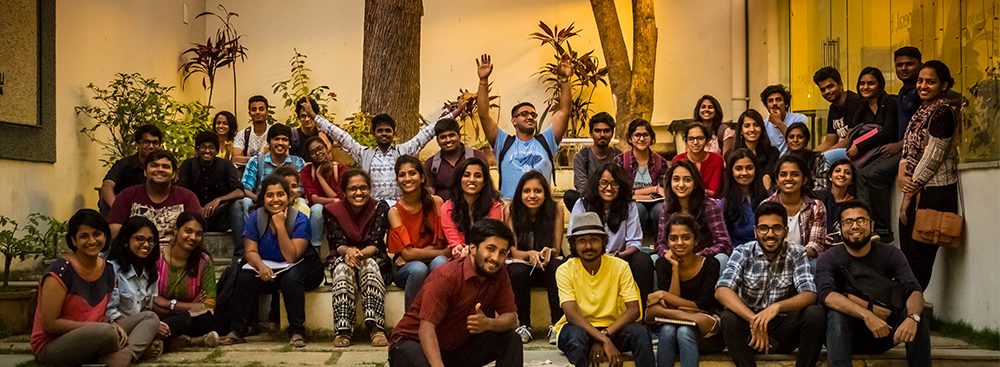“There is an art to science,” said Isaac Asimov, “And a science in art; the two aren’t enemies, but different aspects of the whole.” This has been borne out in theatre in Bengaluru. This year, Gautam Raja’s The Vaidya’s Oath, on antimicrobial resistance, and Nilanjan Choudhury’s The Square Root of a Sonnet, on the life of Chandrasekhar Subrahmanyan, who discovered black holes, were staged to acclaim. Previously, too, plays such as Sundar Sarukkai’s Hardy’s Apology and Michael Frayn’s Copenhagen, directed by Prakash Belawadi, were landmark productions.
The success of plays based on science in Bengaluru could perhaps be attributed to the city being the IT hub and being home to premier scientific institutes.
But writing and directing a science play is challenging. Nilanjan says, “Marrying high science and storytelling in two hours without dumbing down takes a lot of effort. These are plays where the audience has to work as hard as the actors and the director.”
Research for a science play is difficult as material Nilanjan argues is scanty.
“I wanted to write about Janaki Ammal, a botanist. There wasn’t much information on her. In India, the documentation of scientists’ lives is very poor. I was lucky in Chandrasekhar’s case because there were documents available. In the West, on the other hand, scientists write and talk about their work.”
It is not just history, but journalism that lacks scientific enquiry, argues Nilanjan. “There are specialised journalists in the West who write about latest innovations and discoveries, which forms the raw material for a play. So much is known about the Manhattan Project, but not much on India’s Nuclear Programme or about Indian satellites sent to space. We hardly know about scientists such as Anand Chakrabarty and George Sudarshan.”
Sundar Sarukkai, a philosopher and a former Homi Bhabha Fellow, wrote Hardy’s Apology, on Srinivasa Ramanujan and G.H. Hardy. He says the term ‘science plays’ is a misnomer. “Plays don’t have content on science. When I read about Ramanujan’s attempted suicide, I found a story there. Hardy too had attempted suicide. And so I wrote a play based on an imagination of that moment.”
Another of Sarukkai’s hit plays Not an Ordinary Man, a phrase from Einstein’s letter to his son, was staged in 2005. “Einstein had a daughter who he never acknowledged. The play began as a father-daughter story.” Sarukkai agrees that there is not much information on Indian scientists. “That is true of all Indian figures. There are many wonderful, yet untapped stories.”
But is it possible to separate the personality from his profession?
“What are the implications of what it means to be a scientist?” asks Sarukkai, “Ramanujan was deeply religious, does that befit a scientist? I think it’s important to demystify scientists and see them as ordinary people.”
Gautam Raja says presenting complex scientific concepts in a play isn’t challenging.
“And that is a problem. Scientific topics bring with them a range of fascinating human stories filled with greed, folly, bravery, innovation, short-sightedness, suffering and triumph. It is the human story that presents a challenge.”
He agrees with Sarukkai stating:
“A play isn’t a lecture or a documentary, so the real difficulty when writing a scientific play is finding the attachment points for telling a tale of people, and how those people change over the course of the play. The science, in that sense, has written itself.”
He adds the motive isn’t to educate. “This is the debate that surrounds every TheatreScience project, such as the recent The Vaidya’s Oath. The truth is, if the play informs and educates in an effective way, it is probably a boring play. When you start to examine the value of science in theatre, you start to ask questions of the value of art itself. As we admitted many times during the The Vaidya’s Oath project — if we were here purely to educate and inform, we’d be better off printing 100,000 posters and putting them up in every hospital, school, and public space we can find.
“So why a play? And why a play in English in a theatre, and not a Hindi or Kannada or Urdu street play that tours the country?
Gautam argues the job of a playwright is to tell a story. “If you are evaluating the influence or educational aspects of your play, it is a lecture or a piece of propaganda, it is not a play.
“This process of stark honesty was a real journey for me during the development of The Vaidya’s Oath. It is the most honest play I have ever written, and yet it is a science play.”
As for the future of science plays and if enough is being done in the city, Gautam says: “I think the biggest challenge is the precept that a science play would be boring. Nothing will kill the idea of science plays faster than preachy material loaded with jargon. There are so many incredible stories at a place like the National Center for Biological Sciences (NCBS), and the institution is amazing at working with artists and writers. They have residencies and throw open labs to anyone interested. Most scientists understand the kind of information a writer would need. Anyone wanting to write a science play in Bangalore should begin at NCBS.”
The question, therefore, remains if the term ‘science plays’ does justice to theatre and science.
After all, theatre is about the human condition, and as Sarukkai puts it, a play should view a scientist as a human being, without compromising on both science and theatre.
Click here to read the full Article


